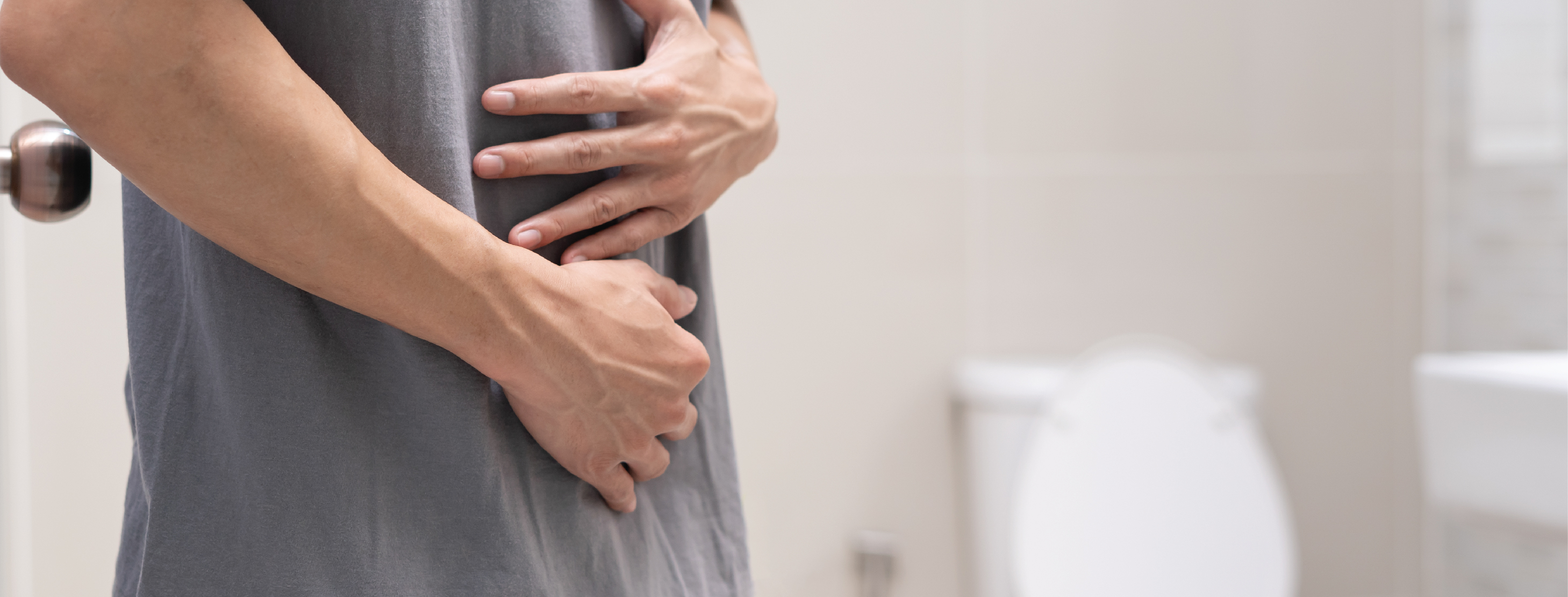
Monday, 2 September, 2024
Firstly What is Diarrhea?
Diarrhea is a common digestive issue that everyone experiences at some point in their lives. It is characterized by frequent, loose, or watery stools and can be accompanied by abdominal pain, cramping, and dehydration. While diarrhea is usually not a cause for concern and often resolves on its own, persistent or severe cases may indicate an underlying health issue that requires medical attention.
Understanding what causes diarrhea and the various types of diarrhea can help manage symptoms and prevent future occurrences. Diarrhea can affect people of all ages and can range from mild to severe.
Types of Diarrhea
Acute Diarrhea
Acute diarrhea is the most common type and usually lasts for a few days. Acute diarrhea is often caused by infections, such as viruses (e.g., norovirus), bacteria (e.g., bacterial infection causes diarrhea), or parasites. Food poisoning and certain medications can also lead to acute diarrhea. While it is usually self-limiting, staying hydrated and getting rest is essential.
Persistent Diarrhea
Persistent diarrhea lasts longer than acute diarrhea, typically between two and four weeks. This type of diarrhea may indicate a more severe infection, chronic digestive disorder, or intolerance to certain foods. If you experience persistent diarrhea lasting longer than a week, it's advisable to seek medical attention. If the diarrhea persists, visiting a gastrointestinal hospital in Bangalore might offer professional advice and care.
Chronic Diarrhea
Chronic diarrhea persists for more than four weeks and can be a sign of an underlying health condition such as irritable bowel syndrome (IBS), inflammatory bowel disease (IBD), or celiac disease. Chronic diarrhea may also be a side effect of medications or a result of long-term infections. Managing chronic diarrhea involves treating the underlying cause and making dietary and lifestyle adjustments.
What Causes Diarrhea?
Infections
Infections are a leading cause of diarrhea and can be contracted through contaminated food, water, or close contact with infected individuals. Viral infections, such as rotavirus and norovirus, are common culprits, especially in children. Bacterial infection cause diarrhea from contaminated food or water sources, such as E. coli and Salmonella, are also prevalent. In addition, parasites like Giardia can lead to diarrhea after consuming contaminated water.
Food Poisoning
Food poisoning diarrhea occurs when you consume food or beverages contaminated with harmful bacteria, viruses, or parasites. Common symptoms include nausea, vomiting, and diarrhea, often occurring within hours of consumption. To avoid food poisoning diarrhea, ensure that food is cooked thoroughly, stored properly, and handled with clean utensils and hands.
Medication Side Effects
Certain medications cause diarrhea, such as antibiotics, which can disrupt the natural balance of bacteria in your gut. Antibiotic-associated diarrhea occurs when antibiotics kill off beneficial bacteria, allowing harmful bacteria to proliferate. Other medications, including laxatives and chemotherapy drugs, can also cause diarrhea as a side effect.
Foods that Upset Your Digestive System
Some foods can trigger diarrhea, particularly in individuals with food intolerances or sensitivities. Lactose intolerance, for example, can cause diarrhea after consuming dairy products. Similarly, consuming large amounts of fatty, greasy, or spicy foods can irritate the digestive system and result in diarrhea. If you are wondering what to eat with diarrhea or what to avoid, identifying and avoiding trigger foods can help prevent episodes of diarrhea.
Diseases Affecting Your Bowels
Chronic diseases such as IBS, IBD (including Crohn's disease and ulcerative colitis), and celiac disease can cause ongoing diarrhea. These conditions affect the digestive tract's ability to process food and absorb nutrients, leading to symptoms such as diarrhea, abdominal pain, and bloating. Managing these diseases often involves a combination of medication, dietary changes, and lifestyle adjustments.
How can we Prevent Diarrhea?
Maintain Good Hygiene
Good hygiene is crucial in preventing the spread of infections that cause diarrhea. Washing your hands thoroughly with soap and water, especially after using the restroom, changing diapers, and before handling food, is one of the most effective ways to prevent the transmission of germs. In situations where soap and water are not available, use an alcohol-based hand sanitizer. Practicing diarrhea prevention through good hygiene is essential in avoiding this condition.
Safe Food Practices
Safe food practices can significantly reduce the risk of foodborne illnesses that lead to diarrhea. Always wash fruits and vegetables thoroughly, cook meat to the recommended temperature, and avoid cross-contamination by using separate cutting boards and utensils for raw and cooked foods. Additionally, refrigerate perishable items promptly and avoid consuming expired or improperly stored food.
Drink Safe Water
Contaminated water is a common source of diarrhea, particularly in areas with poor sanitation. To prevent waterborne diarrhea, ensure that your drinking water is clean and safe. If you are unsure about the safety of tap water, opt for bottled water or use water purification methods such as boiling or using water filters. When traveling to areas with questionable water quality, avoid ice cubes, and consume only bottled or purified water.
Be Cautious with Food Choices
Being mindful of what to eat to prevent diarrhea can help reduce the risk of experiencing this condition, especially if you have known food sensitivities or are traveling to areas where food safety standards may differ. Avoid street food, raw or undercooked meats, and unpasteurized dairy products in unfamiliar environments. When trying new foods, introduce them gradually to see how your digestive system reacts.
Stay Hydrated
Hydration is vital when dealing with diarrhea, as the condition can lead to significant fluid loss. Drinking plenty of water, oral rehydration solutions (ORS), and electrolyte-rich fluids can help prevent dehydration. If you are experiencing diarrhea, it's essential to know what to eat with diarrhea and stay hydrated. Avoid caffeinated, alcoholic, and sugary beverages, as they can worsen dehydration. If you experience severe dehydration symptoms, such as dizziness, confusion, or decreased urination, seek medical attention promptly.
Conclusion
Understanding the top causes of diarrhea, such as infections, food poisoning, medications, and underlying diseases, is crucial for prevention and management. Diarrhea is a common condition that can often be prevented by maintaining good hygiene, practicing safe food practices, staying hydrated, and being mindful of your food choices. Knowing how we can prevent diarrhea and taking proactive steps can reduce the frequency and severity of diarrhea episodes. If you experience persistent or chronic diarrhea, consult a gastroenterologist in Bangalore to determine the underlying cause and appropriate treatment. By staying informed, you can effectively manage and prevent diarrhea, ensuring better digestive health and overall well-being.
FAQ’s
What are the top reasons for diarrhea?
The top reasons for diarrhea include infections (viral, bacterial, or parasitic), food poisoning, medication side effects, and chronic digestive diseases like IBS and IBD.
What is the best way to prevent diarrhea?
The best way to prevent diarrhea is by maintaining good hygiene, practicing safe food handling, drinking clean water, and being cautious with food choices, especially when traveling.
What is the best treatment for diarrhea?
The best treatment for diarrhea includes staying hydrated, using oral rehydration solutions, and taking over-the-counter medications like loperamide, with medical consultation for persistent or severe cases.
What foods can cause diarrhea?
Foods that can cause diarrhea include spicy foods, high-fat or greasy foods, dairy products (if lactose intolerant), and foods contaminated with bacteria or toxins.
Author doctor name
Senior Consultant - Gastroenterologist, Hepatologist & Advanced Therapeutic Endoscopist
MBBS, MRCP (UK), FRCP (UK), FESBGH


 Neurosciences
Neurosciences Bariatric Surgery
Bariatric Surgery